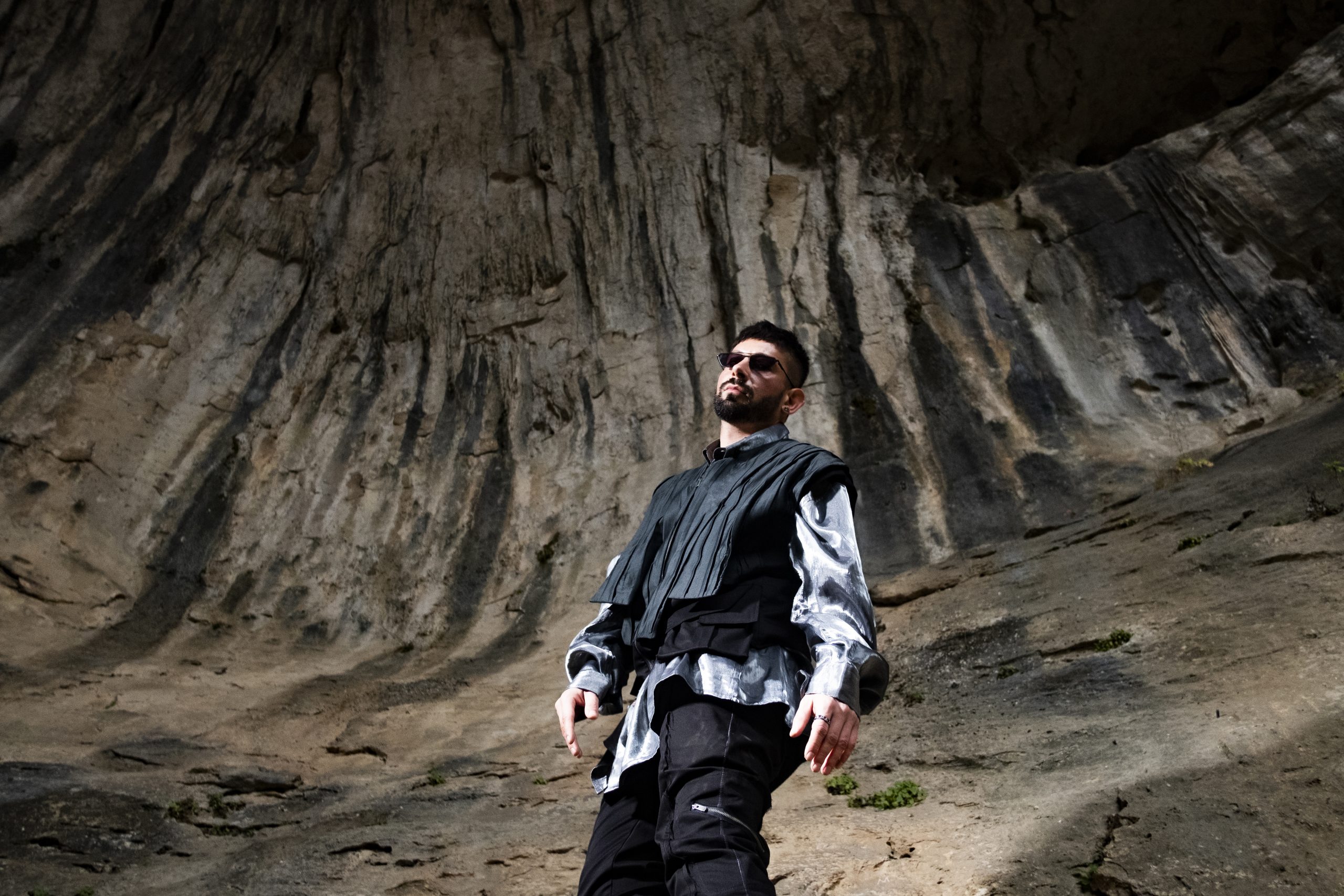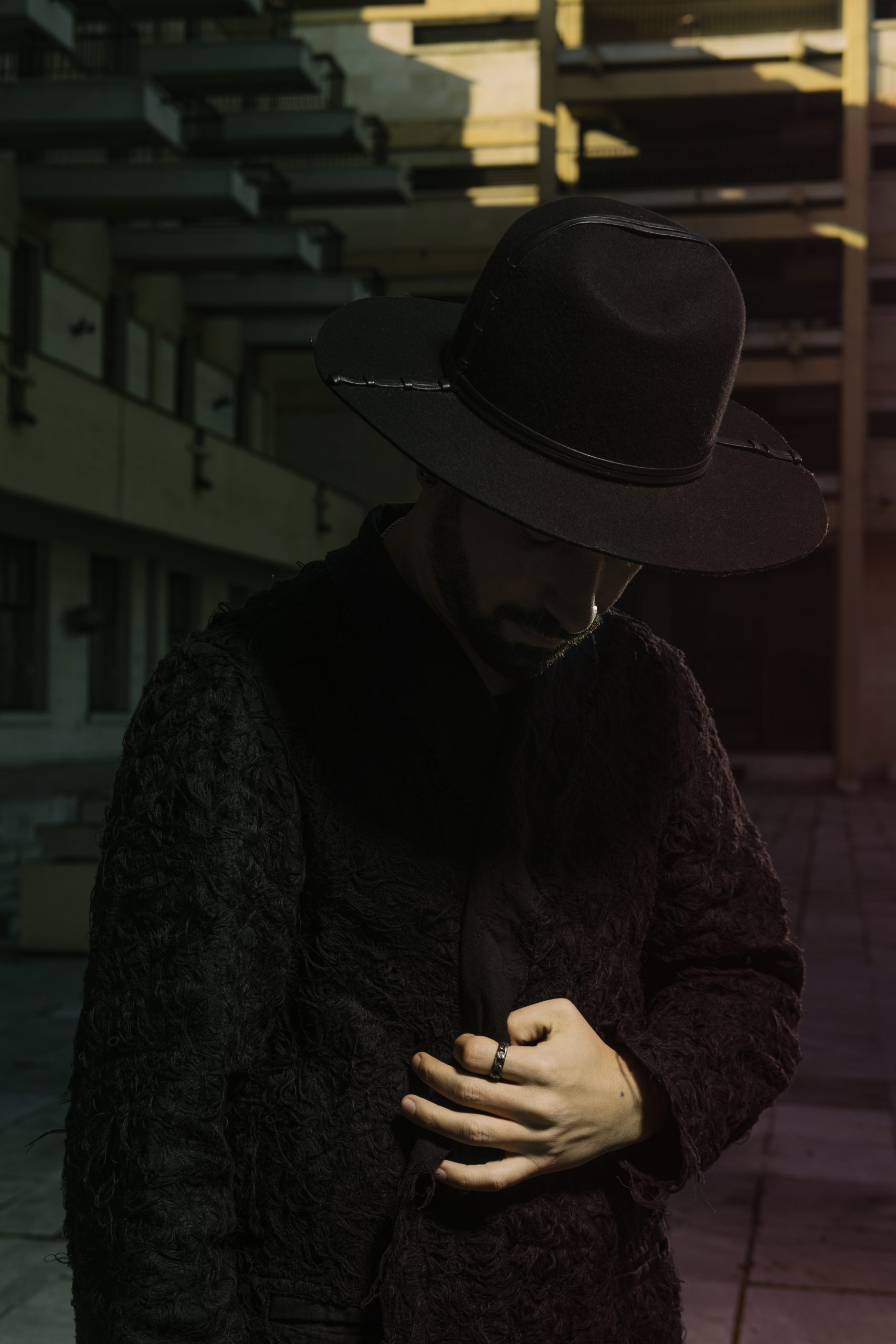
In moments I trace things back to last summer in Los Angeles, everything seems to freeze up. Thoughts in my head part and recess into the calm corners of my brain while my heart tries to make up its mind as to whether it should speed up or slow down. And to be honest with the state of things as they are now, with attention on the Derek Chauvin trial constantly detracted by more police brutality, encapsulating last year’s angst seems a futile endeavor.
Better to employ this task to music. In this moment, with Kan Wakan and Jessica Childress hypnotically reverent, “Oh Mother”.
“I had woken up in the middle of the night during the BLM protests in LA and there was simultaneously an earthquake, sirens and a helicopter above my building and this melody theme looping in my head as a sort of background soundtrack to the scene.”
Says Kan Wakan of the theme that looped in his head, thus starting the midnight scramble to expel the idea from inside of himself. The song itself somewhat of a paradox with its buoyant break beat groove contrasted with lush strings and the emotive delivery of Jessica Childress. But what is most impressive sonically about “Oh Mother” is its ability to evince the raw, “spur of the moment” energy through its calculated production.
“Because of the worsening pandemic situation we had no access to a studio so we ended up using that very first demo recording {of Childress’s voice} as the final one.”
After discovering Jessica Childress by wandering accidentally into her set at the Hotel Cafe, a well known Hollywood venue where singer-songwriters often cut their teeth to industry audiences, Kan kept Jessica in close creative proximity. And now they are making their song work for the causes at hand. The first month’s proceeds of “Oh Mother” will go to Black Votes Matter.
“This organization goes from city to city to energize and educate black voters, helping to break down those logistical barriers put in place by voter suppression initiatives so that their voices can be heard.”
The Demetry directed music video, according to Kan, is a “statement about what it takes to bear witness”. A visual allegory of the poignancy that was burrowed deep into the hearts of all Americans that experienced the trauma and witnessed the protests up close.
“I think of those that have lived through it, and all of us who allow ourselves to be haunted by uncomfortable feelings that serve as a reminder.”
Follow us back to the indelible summer of 2020, in our conversation with Kan Wakan…
The song is beautiful. It’s heartbreaking and yet the music has a hypnotic quality to it. When writing a song like this, do you start with the music and build lyrics to a melody in mind? Or do you leave the lyrics and melody to the featured singer? (In this case Jessica Childress)
Thank you! Many song ideas start out as short melodic loops in my mind, which I then record on phone’s voice memos and come back to later on. I think maybe that’s why I have a tendency to zone-in on patterns and shapes that result in music that can feel hypnotic or meditative. Sometimes a vocal melody is built off existing melodic content within the arrangement, and other times I’ll have only a vocal melody to start with but usually it’s more of a symbiotic relationship between the two. Many times I’ll write the lyrics depending on the song, but usually I prefer to entrust that side to the artist I’m collaborating with as this contributes another dimension. This approach often results in a more instinctive performance as they’re invested in the story emotionally and it comes through on the record.
With ‘Oh Mother’ there was this unusual spur of the moment energy about it. I had woken up in the middle of the night during the BLM protests in LA and there was simultaneously an earthquake, sirens and a helicopter above my building and this melody theme looping in my head as a sort of background soundtrack to the scene. I felt there was something special about it so I rushed to record a rough arrangement and called Jessica right away. She came over the next day and literally within 20 minutes we had the general idea.. she knew what she wanted to say and the lyrics just flowed out of her. We wanted to demo the track so we captured a few takes with the intent to go into a studio later on for the final takes. With vocals I usually record demos at my home studio because I live in a super noisy Ktown apartment and the mic picks up all of the ambience.. but because of the worsening pandemic situation we had no access to a studio so we ended up using that very first demo recording as the final one.
How did you and Jessica come together to collaborate?
I was at this venue in LA called the Hotel Café where usually singer songwriters come through to perform more stripped down, intimate acoustic sets. I was waiting for a friend’s band to begin their set in the main room, and I decided to wander around and check out the newly built room around the side. As I walked closer there was this incredible soulful reverberation and a voice that I felt instantly grabbed by. I walked in mesmerized and watcher Jessica’s set. There was just this raw energy and tendency to take risks which infused the room with that feeling that you were there to experience something that might not happen again. I had to stay and meet this beautiful person and convince her that we need to make some music together.
Those weeks after the George Floyd murder were obviously unforgettable and while the reaction was poignant to the whole nation, being in LA gave a certain tangible quality that is difficult to describe to those that didn’t experience it. Can you elaborate on what you remember feeling and seeing during those weeks here in Los Angeles?
When the lockdown took hold of our lives, life in LA suddenly transformed and everybody’s routines came to a sudden halt. It felt like many people panicked more because they didn’t know what they were supposed to do on an existential level, rather than the initial fear of the virus… it all changed so fast, like a glitch in the matrix that made the entire place feel incredibly surreal. We had been inside for weeks, in fear.. watching the news, forced to pay attention and less able to look away. Then the protests began, I remember the exact day because it was my birthday and I went outside for the first time in weeks. There was this feeling of shared humanity, compassion and a convergence of forces in the air. The pandemic had already changed the way we live and work and you could just see people asking themselves what parts of “normal” are no longer acceptable. It felt like we were witnessing history being made before our eyes. LA being as racially diverse as it is made the reaction to George Floyd’s murder feel so much more poignant and personal. It felt like there was a unifying feeling of anger, fear, disgust and heartbreak that overshadowed everything else happening in that moment.
Now that it’s been some time since the inception of this song, what does it bring up for you when you listen?
Well, I don’t often listen to my previous work after it’s been released. There’s an overall sense of embarrassment comparable to seeing myself on video or listening to my own voice. Maybe it’s because instead of running away from the emotion, I stay with it as long as I could in order to fully immerse myself and finish the song which can be a long process, and after it’s done I don’t have the urge to experience that same feeling. I think I’ll always associate this song with that period of my life. It brings up emotions of grief, healing, and a haunting sense of unity. I think of those that have lived through it, and all of us who allow ourselves to be haunted by uncomfortable feelings that serve as a reminder.

The video is devastating and exquisitely captured. Can you elaborate on how the treatment came to be and what the premise means to you?
When Jessica and I got together to work on the song, she heard it a couple of times, pulled out her phone and immediately wrote these words down. There was this surreal sense of fluidity and as if everything was happening for a reason. The story she was trying to tell was a deeply personal one, from the perspective of a daughter, and a mother. Later on when I got together with Demetry, the director of the video, he hadn’t really analyzed the lyrics yet, but had imagined these vivid visuals of a scene where there’s been an accident and people have gathered around. I thought it was really interesting how he touched thematically on the different perspectives in the song by creating a concept where the focus is on two people that play multiple roles. To me it’s a statement about what it takes to bear witness. My contribution to the concept was to suggest a scene with a child at the end, which would impart in a subtle way that perhaps we’re seeing things through their perspective.
The first month’s proceeds will go to a nonprofit called Black Votes Matter. Can you tell us a little about what this company does to fight voter suppression and how you came to be involved with them?
Black Votes Matter is a nonprofit that Jessica chose as we were looking at organizations that increase power in marginalized, predominantly Black communities. This organization goes from city to city to energize and educate black voters, helping to break down those logistical barriers put in place by voter suppression initiatives so that their voices can be heard. I encourage everyone to use your voice, go to a protest, donate money to organizations if you can do so, make post to inform others, do whatever you can.
With 2020 over, how are you feeling as far as your place in the world right now as an artist? Where do you think your focus will land this year?
Launching a creative endeavor has felt somewhat incomprehensible, when conditions for creating art are so uniquely discouraging, but somehow for me it’s had an unexpected silver lining. Around the same period as the onset of the pandemic, I had reached an impasse in my life, having realized the rhetoric of productivity had been strangling me for too long. I committed myself to a new way of living, one centered on rest and regeneration, not on the value of my labor. I found a sense of peace amidst the storm of fear and uncertainty and all the sudden there was silence, and a shared emotional catharsis as we all faced the same reality. I was trapped in my home studio and had all the time in the world to finish my own projects, and develop unfinished ideas at my own pace. I was able to get into a rhythm and formulate my ideas without having to cut through all the noise. My focus now will be on releasing the new album and everything else that’s in cue to trickle out over the next year.
CONNECT WITH KAN WAKAN
photos / courtesy of artist
story / Chris Hess
